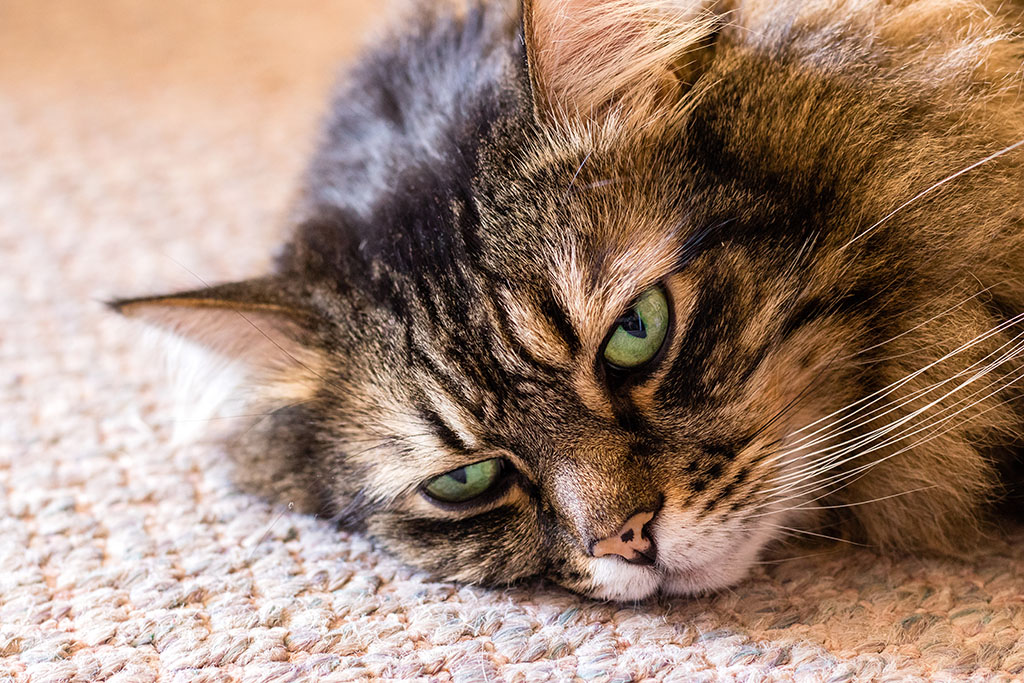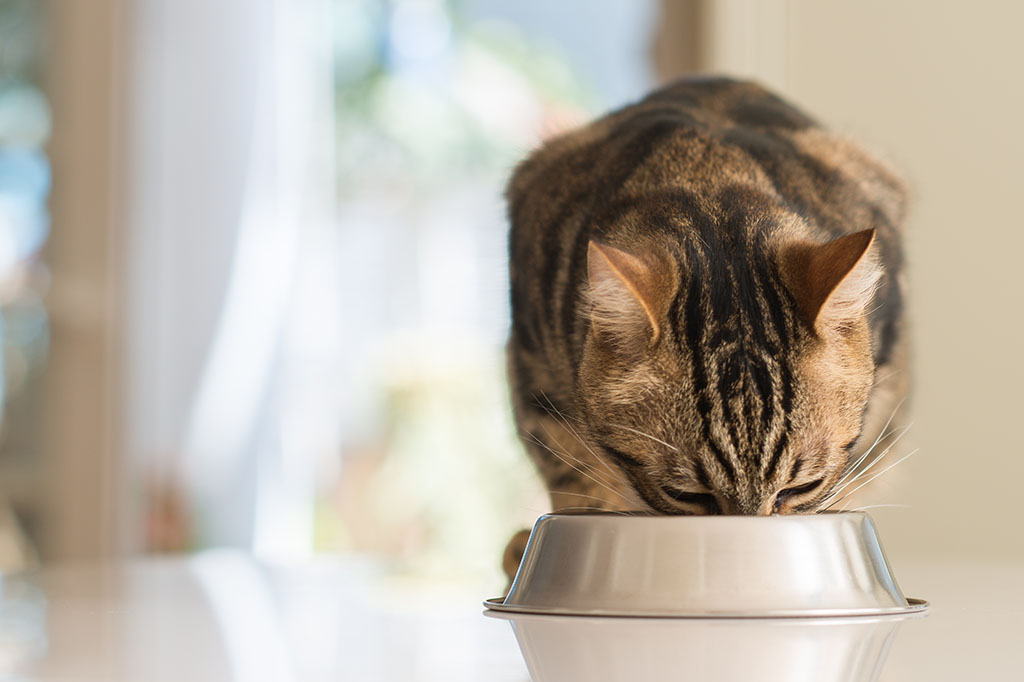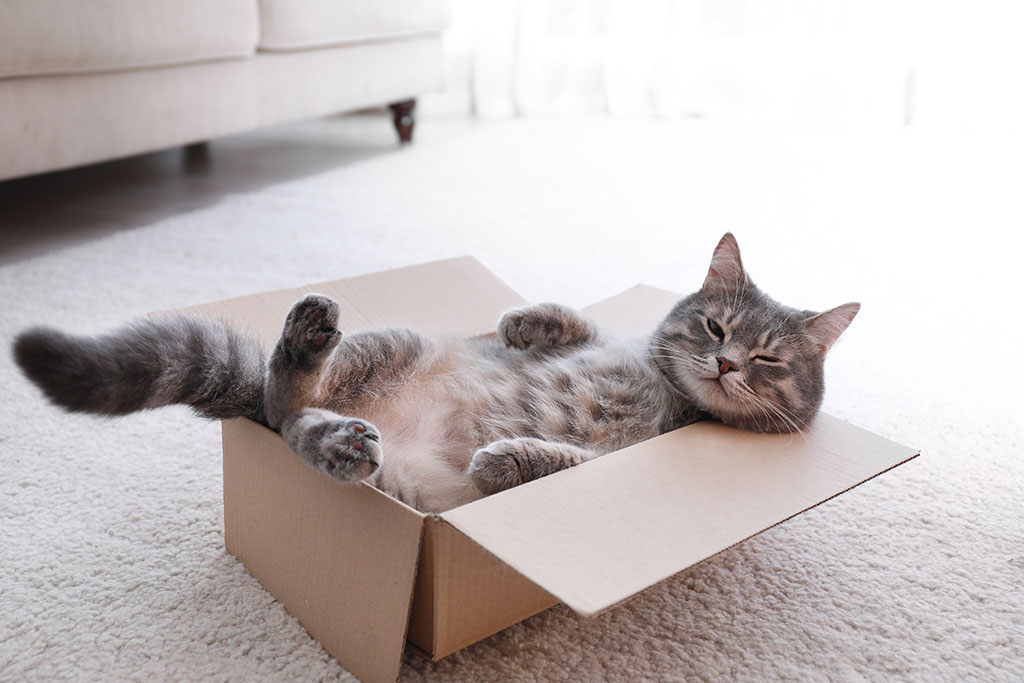
Nobody likes to think of their pet getting older, they’re part of the family and we all want to think that they’ll be with us for a long time. The average lifespan of a cat, depending on diet, lifestyle, breed and genetics, is 13 to 17 years – although Flossie, who at 26 is the world’s oldest cat, might have something to say about that! Cats are considered to be middle-aged from the age of 7, senior from 11 to 14 years old, and geriatric from the age of 15.
If you’re a cat owner you know that all cats are different, they each have their own peculiar ways, but what should we expect as our cats get older and how should we look after them?
As cats age their behaviour might change; like us they may slow down and want to sleep more; some cats might need more cuddles while others might want to be left alone. Older cats can be more susceptible to certain medical conditions, their muscles and bones become weaker, and their hair loses its shine, with the appearance of the odd white hair; they might suffer from reduced hearing and sight and their memory might not be what it was. But older cats can still lead a happy, active life if their humans make a few adjustments.
Let’s take a look.
Diet
A cat’s dietary needs can change as they get older, they may not be as active as they once were, or they may have a reduced sense of taste or smell. If your vet thinks it’s a good idea you could have a look at diets that are specifically designed for senior cats. If your cat has less appetite, you could try feeding them little and often or trying different flavours and consistencies. Some cats also prefer having their food warmed up.
It’s always a good idea to keep an eye on your cat’s weight, whatever their age, but as weight loss can be a sign of illness in older cats it’s particularly important when looking after your older cat.
Weight gain is just as serious, as overweight cats are more prone to kidney conditions, diabetes, and arthritis. Remember, fluid intake is also important but if your cat is struggling to move around as much it might be worth putting more than one bowl of water around the house, this means they can access it more easily.

Arthritis
9 out of 10 older cats show evidence of arthritis, yet many owners aren’t aware of it. One of the most important factors in arthritis prevention and treatment is weight, even just a couple of pounds extra can put pressure on painful joints. One of the best things you can do for your cat is take them for regular check-ups with a vet; there are drugs available, and dietary supplements, and acupuncture can also help. It’s also worth keeping an eye out for signs that they may not be grooming themselves as often, so they might need help with a soft brush, taking care where their bones protrude, and a damp cloth around their eyes. They might also find it more difficult to scratch on a vertical post so you could swap it for a horizontal one and check their claws regularly for damage.
Older cats still like to climb, they just might not be as flexible as they used to be, so getting up and down could be a struggle, especially if their eyesight isn’t what it was. You could help them by positioning a piece of furniture as a step, as well as placing cushions underneath windowsills etc so they have a soft landing if they misjudge that jump.
Teeth
Dental problems are also common in older cats; they can get holes in their teeth, break a tooth, or develop gum disease, as well as develop oral tumours. Dental infections could get into the bloodstream and affect other organs in the body, such as the heart, liver, and kidneys, so it’s really worth keeping an eye on them so you can spot any problems early on. Cats can’t tell you when something is hurting, but you can look out for signs such as bad breath, reduced appetite, problems eating, drooling and facial swelling. It might be necessary to remove a tooth, and while any surgery on an older pet is a worry, modern anaesthetics are considered safe and removing the tooth will mean your cat can eat normally again and be much happier.

Behaviour
Lots of things can affect an ageing cat’s behaviour and there are any number of things that could mean your usually playful cat isn’t their usual self, for example, impaired hearing, a reduced sense of taste and smell or sore joints. Like humans, cats can suffer from dementia so if you do notice any particularly odd behaviour, for example, if they often seem confused, or don’t greet you as they usually do when you walk through the door, it might be worth getting them checked out by a vet.
Older cats still like to play as much as they did when they were little, it just might not be as energetic! Play time is still important and, as with humans, gentle exercise is great for supporting mental and physical health, it just needs to be adapted slightly. By all means give them that trusty cardboard box to play with, but you might want to put it on its side so they can get in and out more easily.
Above all, cats like routine and may not cope as well with changes, or stress, so introduce new routines/food/toys gradually.
Conclusion
Looking after an older cat can have its challenges, as some symptoms that are common signs of ageing could also be an indicator of something more serious; sitting and staring at a blank wall could be interpreted as a sign of dementia, but it’s also something a lot of younger cats do too. And they might not be ignoring you because they’re confused and have forgotten who you are, it could just be that they can’t hear you because their hearing isn’t as good anymore.
As any cat owner knows, cats are notoriously stubborn and often change long-held habits for no clear reason other than they can! The key is to know your cat and know what is normal behaviour for them. You might also want to have a look at our Senior Cat Insurance that is specifically tailored to the older cat, aged 8 and over. You can tweak it with a range of Optional Benefits to suit your needs, starting at £4.26* per lunar month. Our cats are our family, and we want them to enjoy every minute of those 9 lives!
*Premium shown is paid lunar monthly including introductory discount based on a Moggie, over 8 years old, living in York on an Accident Only policy.
All content provided on this blog is for informational purposes only. We make no representations as to the accuracy or completeness of any information on this site or found by following any link on this site. We will not be liable for any errors or omissions in this information nor for the availability of this information. We will not be liable for any loss, injury, or damage arising from the display or use of this information. This policy is subject to change at any time.
We offer a variety of cover levels, so please check the policy cover suits your needs before purchasing. For your protection, please ensure you read the Insurance Product Information Document (IPID) and policy wording, for information on policy exclusions and limitations.


